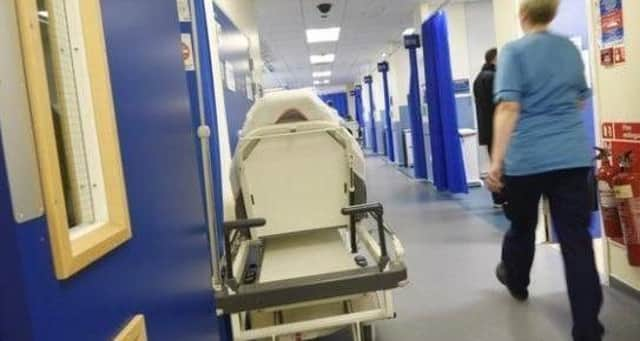New report reveals more than 30 per cent of Edinburgh health and care targets were missed last year


More than 30 per cent of reviewed services managed by health and social care bosses in the Capital have failed to reach performance targets, a new report has revealed.
The report outlines the 2019/2020 financial year performance of the Edinburgh Integration Joint Board (EIJB), the body responsible for overseeing health and social care services in the city.
Advertisement
Hide AdAdvertisement
Hide AdDue to the coronavirus crisis the majority of data referenced in the document relates to 2019.
Figures from last year reveal that 37 per cent of targets set by the EIJB were not met.
Areas that missed their target include emergency occupied bed days for mental health patients, unplanned hospital admissions and A&E attendances.
Compared to the Scottish average, last year alone Edinburgh underperformed in three out of reviewed nine areas: number of days people spend in hospital when they are ready to be discharged, emergency readmissions to hospital within 28 days of discharge and falls rate per 1,000 population aged 65+.
Advertisement
Hide AdAdvertisement
Hide AdHowever, last year Edinburgh equaled the Scottish average when it came to the proportion of care services graded ‘good’ or better in Care Inspectorate inspections, and the percentage of health and care resource spent on hospital stays where the patient was admitted in an emergency.
Across 20 reviewed areas, some of which use data predating 2019/2020, Edinburgh performs worse than the Scottish average in 60 per cent of cases.
The total combined percentage of carers who felt supported to continue in their caring role was 34 per cent in 2017/2018, compared to the Scottish average of 37.
Meanwhile, in 2017/2018 the percentage of adults supported at home who agreed that their health and social care services seemed to be well co-ordinated sat at 66 per cent, compared to the Scottish average of 74.
Advertisement
Hide AdAdvertisement
Hide AdConservative Group Chair, Cllr Jason Rust, said: “It is really concerning that Edinburgh is performing so poorly when benchmarked against other areas.
“To be below the Scottish average on well over half the measures is extremely worrying and it is clear the performance and delivery needs to be significantly improved, particularly in relation to emergency readmissions to hospitals.”
A Spokesperson for the Edinburgh Integration Joint Board said: “The draft Edinburgh Integration Joint Board Annual Performance Report will be considered by the board at its meeting on 24 August and highlights that Edinburgh’s overall performance remains broadly in line with national averages.
“Our rate of emergency admissions ranks third across Scotland and has been consistently lower than the Scottish average since 2013/14. Likewise, we have seen strong performance against the measure of rate of emergency bed days for adults and progress in relation to performance will continue to be monitored throughout the year.
Advertisement
Hide AdAdvertisement
Hide Ad“The EIJB approved its Strategic Plan in August 2019, setting out an ambitious transformation programme for the city over a three-year planning cycle, setting the conditions for longer term, sustainable change. Despite the impact of the COVID-19 pandemic, our preparations for the transformation programme are well advanced and we have made steady progress in the roll out of the Three Conversations approach in the city, testing the concept of our Home First Edinburgh model and the initial engagement stage of the Edinburgh Health and Social Care Pact.
“We will continue to find ways to improve outcomes for people in Edinburgh and be innovative in our approaches against a challenging backdrop of a rising population, changing patterns of health and care need and ongoing financial pressures.”
A message from the Editor:Thank you for reading this story on our website. While I have your attention, I also have an important request to make of you.The dramatic events of 2020 are having a major impact on many of our advertisers - and consequently the revenue we receive. We are now more reliant than ever on you taking out a digital subscription to support our journalism.Subscribe to the Edinburgh Evening News online and enjoy unlimited access to trusted, fact-checked news and sport from Edinburgh and the Lothians.
Visit https://www.edinburghnews.scotsman.com/subscriptions now to sign up.By supporting us, we are able to support you in providing trusted, fact-checked content for this website.Joy YatesEditorial Director